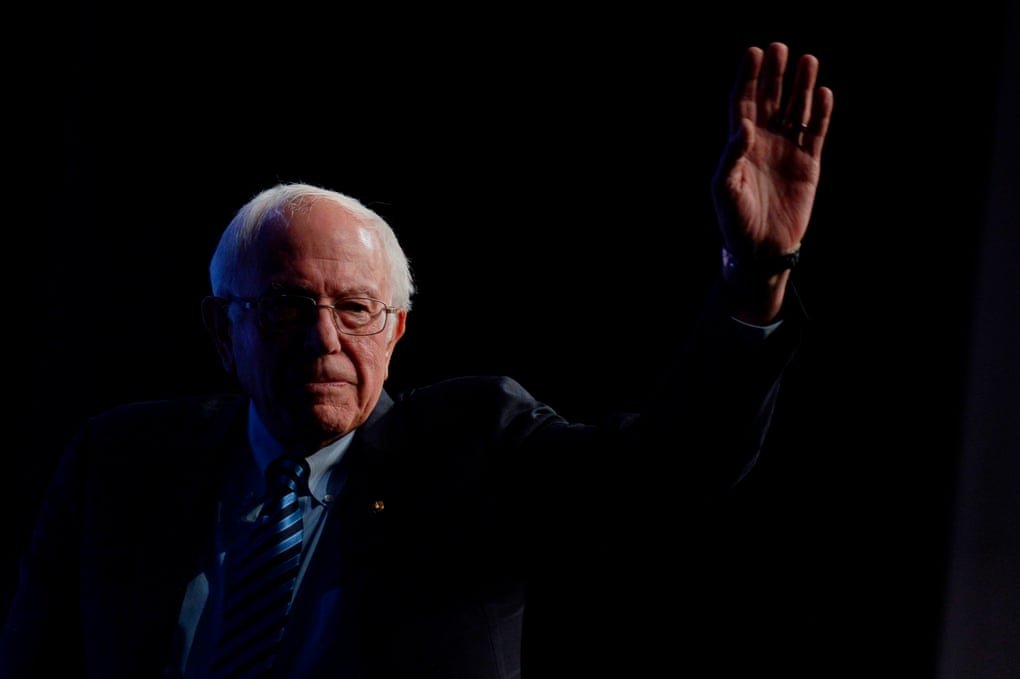
The inspirational senator’s youth-led movement pushed for sweeping social change but fell far behind Joe Biden in a bid for the nomination, writes Lauren Gambino, in The Guardian.
Bernie Sanders, the 78-year-old senator from Vermont who reshaped American politics with his youth-led movement for sweeping social change, announced on Wednesday that he was ending his presidential campaign for the 2020 Democratic nomination.
Sanders informed staff he was suspending his presidential campaign during a conference call on Wednesday morning, capping what has been an extraordinary rise from relative obscurity to the standard-bearer of the American left as an unabashed democratic socialist who championed the working class and called for political revolution.
His departure all but ensures the former vice-president Joe Biden will be the Democratic presidential nominee in an election against Donald Trump amid the rapidly escalating coronavirus crisis.
After storming through the early primary voting states with strong performances in Iowa and New Hampshire and a dominating victory in Nevada in February, the political momentum turned inexorably against him as South Carolina revived Biden’s sputtering campaign. The state was the also the beginning of the end for Sanders in 2016, during his first campaign for the nomination when he challenged Hillary Clinton. Though he fell short of the nomination, his insurgent candidacy reinvigorated the American left.
For weeks, Sanders resisted calls to leave the race despite falling almost hopelessly behind his rival as the pandemic forced the candidates to retreat from the campaign trail and governors to delay several key primary elections. Against the worsening economic and public health crises, Sanders found a new urgency for his progressive agenda, the centrepiece of which is a single-payer proposal that would guarantee health coverage for every American.
In the final weeks before his exit, Sanders effectively turned his campaign into a coronavirus response effort, hosting virtual events on the virus and raising money for charities helping those affected by the outbreak.
He said the unprecedented public health crisis exposed the “cruelty and absurdity” of the American healthcare system, which he would like to see replaced by a Medicare for All program. But his efforts did not shift the political reality.
Though the early days of the primary were shaped by a robust contest of ideas, Democrats’ overriding priority was not ideology but electability. In March the race abruptly narrowed from a historically diverse field of candidates to two white men in their 70s. Suddenly fearful that a democratic socialist would jeopardize their chances against Trump in November, Democrats in states from Florida to Washington, Michigan to Texas aligned behind Biden, ultimately denying Sanders a path forward.
As Sanders fell further behind in the delegate count, he sent mixed signals about his intentions. In a series of public statements from his home town of Burlington, where he retreated amid the outbreak, Sanders accepted that he was losing the battle over “electability” to his rival, but asserted that he was winning the “ideological” and “generational” debate.
Sanders, ever strongest in the role of underdog, fought his way back into contention after suffering a heart attack in October and was all but written out of the race. As Elizabeth Warren, an ideological ally turned rival, fell behind, Sanders consolidated support on the left and, for a time, was the frontrunner for the Democratic nomination.
But he only found success when his opponents were divided. Biden’s South Carolina win forced fellow centrists Amy Klobuchar and the former South Bend mayor Pete Buttigieg out of the race. Both threw their support behind Biden, who then swept 10 of the 14 Super Tuesday states, a hot streak that continued through March.
The billionaire Mike Bloomberg quickly dropped out after that and endorsed Biden. Warren bowed out the following day but declined to endorse either candidate in what was viewed as a loss for Sanders.
Perhaps no single candidate has done more to reshape the Democratic party in the past four years than Sanders.
Issues he popularized in 2016 – from Medicare for All to climate change – were the center of robust debates during the 2020 race. But his long-sought political revolution never quite arrived. Though Sanders made gains with Latino voters, he struggled to expand his appeal to black voters and young voters did not turn out in the numbers he hoped.

The High Asia Herald is a member of High Asia Media Group — a window to High Asia and Central Asia

